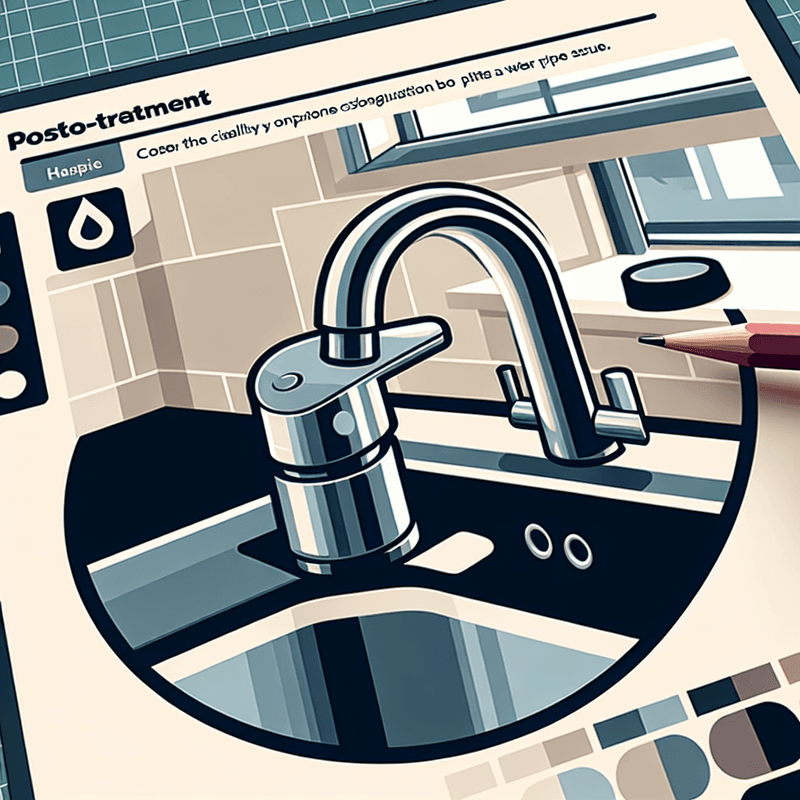When discussing household plumbing, the topic of water pressure is inevitable. High water pressure might seem like a bonus when you're enjoying a powerful shower, but it can be a major cause of stress, damage, and unnecessary expense in your home’s plumbing system.
Understanding the underlying mechanics and consequences of high water pressure helps in identifying the problem early and tackling it efficiently. This blog will delve into the causes of high water pressure, its impacts on your plumbing, and practical steps to manage and rectify the situation, ensuring your plumbing remains in optimal condition.
What Causes High Water Pressure?
The source of high water pressure in homes can vary significantly. It often stems from the municipal water supply, where high pressure is needed to deliver water to high-rise buildings or over long distances. In some instances, thermal expansion in household water systems, especially those with a closed system equipped with a one-way valve or backflow preventer, can also raise internal water pressure.
Signs of High Water Pressure
Identifying high water pressure early can save you a lot of trouble down the line. Key indicators include:
- Banging Pipes: Often referred to as 'water hammer', this occurs when water is turned off suddenly and bangs in the pipes due to its rapid halt.
- Leaky Faucets: Frequent leaks, especially at times when no one is using water, can be a sign.
- Running Toilets: Toilets that continuously run or frequently start and stop may be succumbing to excessive pressure.
- Burst Pipes: These are less common but indicate severely high pressure in your plumbing system.
- Appliance Issues: Dishwashers and washing machines can fail prematurely due to high pressure.
How to Properly Measure Water Pressure
To tackle high water pressure, you first need to confirm the pressure is indeed too high. A simple pressure gauge, available at most hardware stores, can be attached to a spigot outside your house. The ideal pressure should be between 40 and 60 pounds per square inch (psi). Readings consistently above 60 psi indicate that you certainly have a high water pressure problem.
Immediate Steps to Reduce High Water Pressure
If you confirm your water pressure is too high, there are several steps you can take:
1. Contact your local water supplier: Sometimes, the issue stems from the municipal supply and can be resolved by them.
2. Install a pressure regulator: This device, fitted where your main water line enters the home, can keep pressure at safe levels.
3. Check for thermal expansion: If your home’s heating system heats water, thermal expansion could increase pressure, and an expansion tank might be necessary.
Long Term Maintenance and Checks
Maintaining optimal water pressure is not just about making adjustments now. Regular checks and maintenance are essential:
- Routine inspections: Look out for the above signs of high water pressure and also monitor your water bill for unknown spikes, which could indicate leaks.
- Check the pressure regulator: If you have a regulator already installed, check it periodically to ensure it's functioning properly.
- Consider professional inspections: Sometimes having a professional look over your system can catch issues you might overlook.
When to Call a Professional
While some aspects of reducing high water pressure can be a DIY task, there are times when it's advisable to call in a professional plumber:
- Installing a pressure regulator: This task requires technical knowledge of plumbing systems.
- Signs of damage from high pressure: If you notice burst pipes, severe leaks, or extensive damage, professional repair will be necessary.
Long-Term Prevention
The best way to manage high water pressure is to prevent it from causing damage in the first place:
1. Regular monitoring: Keeping an eye on your water pressure with a home gauge is simple and effective.
2. Consultation and upgrades: Regular consultations with a plumber can help you understand if your home might benefit from upgraded fixtures or additional regulators.
Conclusion
Handling high water pressure is crucial for the longevity and efficiency of your home’s plumbing system. By understanding the risks, recognizing the signs, and taking appropriate measures (either DIY or with professional help), you can safeguard your home from the potentially damaging effects of high water pressure.
As a practical step, consider purchasing a water pressure gauge today to keep an eye on your pressure readings. This small investment can lead to significant savings in home maintenance costs and protect your property for years to come.





